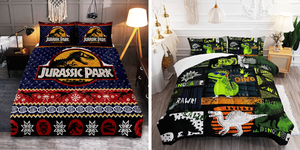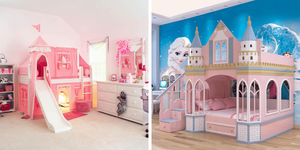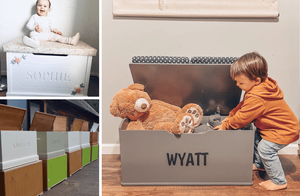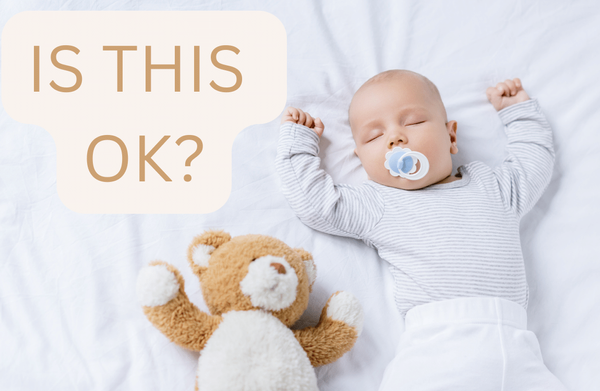Ah, sippy cups. The beloved (or dreaded) staple of many a parent's household. Some experts caution against them, citing concerns about speech development and tooth decay. On the other hand, many parents swear by them as a step towards independence for their little ones. It's enough to make your head spin!
So which is it? Are sippy cups bad for our children, or are they actually helpful in helping them learn how to drink independently and more easily transition away from bottles or nursing as they get older? In this blog post we'll dive into these questions so that you can make an informed decision about your child’s drinking habits.
The truth about sippy cups - what parents need to know
Let's talk sippy cups. We've all heard the hype - they're a must-have for toddlers and can prevent spills. But, what's the real deal?
Well, first off, there's the issue of tooth decay. If sippy cups are constantly filled with a sugary drink, they can wreak havoc on a child's mouth. Plus, did you know that sippy cups can affect a child's speech development? But wait, this is with prolonged sippy cup usage. Constant sipping can cause an over-reliance on improper tongue thrust and lip movement.
But don't worry, it's not all doom and gloom. Sippy cups can be a great transitional tool to wean your child off the bottle and onto a regular open cup.
Just be sure to look for ones that are spill-proof and easy to clean. Trust me, you'll thank me later.

Sippy cup safety and hygiene
As a parent, you're always seeking ways to keep your little one safe and healthy. But with so many things to worry about, sippy cups might not always rise to the top of your list.
When it comes to sippy cup safety, make sure to clean the cups thoroughly between uses to avoid any buildup of bacteria. And, don't forget to regularly replace any cracked or worn out cups to ensure a secure seal and avoid any accidents. With a little extra effort, you can rest easy, knowing your child is slurping safely.
The pros and cons of sippy cups - why some experts say “no” and others say “yes”
First off, yes, sippy cups can potentially lead to speech issues if they are used exclusively for too long. However, as long as they are used in moderation and not a permanent fixture, they can be a great way to introduce your child to drinking from a cup on their own.
As for tooth decay, that can be avoided by choosing a spill-proof cup and not letting your child constantly sip on sugary drinks.
Ultimately, it's up to you to decide what works best for your family. Just don't be surprised when you inevitably find a half-full sippy cup hiding under your couch cushions. Ah, parenthood.

How to get your kids to drink from a regular cup - tips for successful transitioning
If you're tired of cleaning up spills and constantly replacing your toddler's sippy cup, it's time to teach your kids how to drink from a regular child's cup. But don't worry, this transition can be successful with a few tips.
First, start with a small cup that's easy for your child to hold. Second, practice during meal times and offer small amounts of liquid at a time. Third, be patient and don't expect perfection right away - spills will happen!
Just keep practicing and soon enough you'll be able to say goodbye to all those little cups cluttering up your cabinets. Plus, think about the extra money you'll save not having to buy replacement sippy cups!
More than one kind of sippy cup?
You may be thinking, "Aren't all sippy cups the same?" Oh, ye of little faith! There are actually a plethora of options for your little ones when it comes to quenching their thirst.
There's the straw cup with different types of straws, from soft and flexible to hard and durable. And the sizes and shapes available are endless- there are cups for tiny baby hands, ones with handles for the toddler stage, and bigger cups for older kids.
Not to mention, depending on age and preference, some kids may prefer a spout over a straw. So, if you thought sippy cups were a one-size-fits-all situation, think again. Your child might just have a preference that can make all the difference in hydration happiness.

Finding the right sippy cup for your child - choosing one that meets their needs
As parents, we all know the struggle of finding the perfect sippy cup for our little ones - one that doesn't leak, is easy to hold, and doesn't turn into a moldy science experiment after one use.
It can feel like a daunting task, but fear not! With a little bit of research and trial and error, you'll find the sippy cup that meets your child's needs and minimizes your cleanup.
Plus, think of the money you'll save on paper towels! So, go forth and conquer the sippy cup aisle.


So, Are Sippy Cups Bad? We Don't Think So!
All in all, using sippy cups aren't the end of the world and shouldn’t immediately be wiped off the table. As long as parents are cleaning them and their kids are drinking from regular cups soon enough, there isn't much to be concerned about.
There's no one-size-fits-all solution to developing healthy drinking habits, but what we do know is that having access to sippy cups and other non-messy alternatives can make keeping children hydrated a little bit easier.
At the end of the day, whether it’s with a sippy cup or not, helping your child establish good habits when it comes to hydration is one beneficial step every parent should take.
Sippy Cup FAQs
If the confusion over sippy cups is making you want to reach for a stronger cup of your own, fear not, here's some FAQs to help you out.
What types of sippy cups are best for children?
When choosing the best sippy cup for your child, it’s important to consider factors such as age and stage, material, design, and ease of use. For young children (ages 6 months+), straw cups or soft spout cups are often the best choice. They’re easy to drink from and can help children learn how to transition from bottle-feeding to drinking from a cup.
When should my child start using a sippy cup?
Most pediatricians recommend introducing a sippy cup around 6 months of age, when babies start transitioning from breastmilk or formula to solid foods.
How do I clean and care for my child's sippy cup?
Always follow the manufacturer's instructions for cleaning and caring for your child's sippy cup. Be sure to wash it thoroughly after each use and replace it if it shows signs of wear or damage.
Should I wean my child off of sippy cups?
Yes, most pediatricians recommend transitioning children from sippy cups to regular cups by the age of 2-3 years. This helps promote proper oral development and prevents prolonged sippy cup use which can lead to speech delays or dental issues.
More helpful related reads for you!
If your child is starting to want to hold their own drink and feed themselves, then you may benefit from a snack tray and a stroller liner for the seat to prevent spills and stains!












